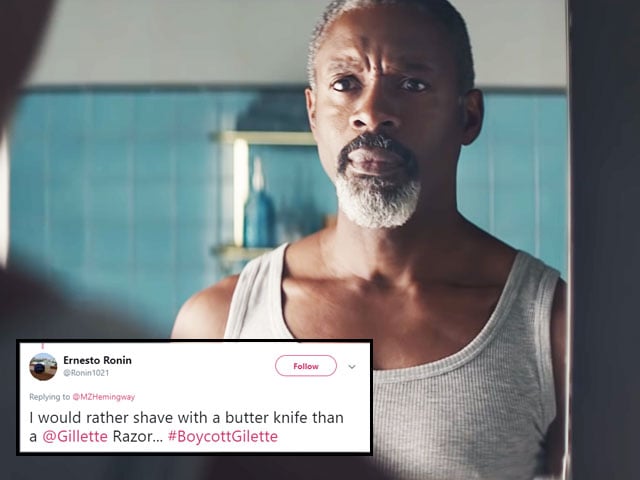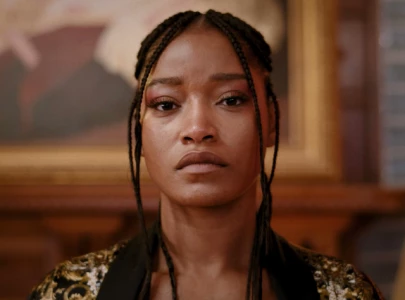
"Is this the best a man can get? Is it?" the narrator asks, 30 years after the leading personal care company debuted its tag line at the 1989 Super Bowl.
The short film shows clips from news reports about the #MeToo movement and goes on to talk about "toxic masculinity" and bullying. It's time to stop "making the same old excuses" about "boys being boys," the ad requests.
"We believe in the best in men. To say the right thing. To act the right way. Some already are, in ways big and small. But some is not enough. Because the boys watching today will be the men of tomorrow," the narrator can be heard saying in nearly two-minute long video.
While many lauded the brand for its innovative and 'woke' approach towards the much-needed discussion, others haven't been too impressed. "So brave to see Gillette calling out toxic masculinity. They’ve made a fortune over the years by pretending there are differences between men and women. Fingers crossed this campaign is successful enough to put them out of business once and for all," a user wrote.
https://twitter.com/TitaniaMcGrath/status/1084886020800348160
"Gillette's new campaign thoughtfully and critically examines what 'The Best a Man Can Get,' the brand's iconic tagline, means today. A must watch," The Huffington Post founder Ariana Huffington tweeted.
.@Gillette's new campaign thoughtfully and critically examines what "The Best a Man Can Get," the brand's iconic tagline, means today. A must watch. https://t.co/5WKmfferhl
— Arianna Huffington (@ariannahuff) January 15, 2019
"Men are collectively losing their minds over a Gillette ad that simply shows toxic masculinity has disadvantaged men and that men have a choice to step up and be better. Imagine thinking a challenge issued to you to step up and help heal the problems you caused is an 'insult'," wrote another.
Men are collectively losing their minds over a #Gillette ad that simply shows toxic masculinity has disadvantaged men & that men have a choice to step up and be better
— 🦁👩🏼⚖️💃📚 (@AvaGraceVIP) January 14, 2019
Imagine thinking a challenge issued to you to step up and help heal the problems you caused is an “insult” 🙄 https://t.co/Q8uYHMkMKt
Many social media users criticised the brand for its depiction of men, calling the company 'anti-men' and 'insulting.' So, it wasn't much of a surprise when #BoycottGillette started trending on Twitter.
"The problem isn't toxic masculinity. The problem is too little masculinity. I hope your company goes bankrupt. Maybe other businesses can learn from this. Don't hire college students with a degree in gender studies to your marketing dept," wrote one user.
https://twitter.com/fr33dom_fight3r/status/1085079874589605888
"You just lost a customer," said another.
You just lost a customer, #BoycottGilette
— Ryan Fletcher (@RyanFle80754729) January 15, 2019
"I would rather shave with a butter knife than a Gillette razor," another one penned.
I would rather shave with a butter knife than a @Gillette Razor... #BoycottGilette
— Ernesto Ronin (@Ronin1021) January 15, 2019
"So nice to see Gillette jumping on the “men are horrible” campaign permeating mainstream media and Hollywood entertainment. I for one will never use your product again," said another.
So nice to see @Gillette jumping on the “men are horrible” campaign permeating mainstream media and Hollywood entertainment. I for one will never use your product again. https://t.co/uZf7v4sFKm
— James Woods (@RealJamesWoods) January 14, 2019
Indeed, it’s a strong stance for a brand to take, but one that’s so important. Thank you for directing the conversation towards men and how they can — and must — do better.
Have something to add to the story? Share it in the comments below.


1672385156-0/Andrew-Tate-(1)1672385156-0-165x106.webp)



1732012836-0/Express-Tribune-(9)1732012836-0-270x192.webp)
1732005713-0/Express-Tribune-(6)1732005713-0-270x192.webp)


1732004244-0/Untitled-design-(13)1732004244-0-270x192.webp)






COMMENTS (1)
Comments are moderated and generally will be posted if they are on-topic and not abusive.
For more information, please see our Comments FAQ